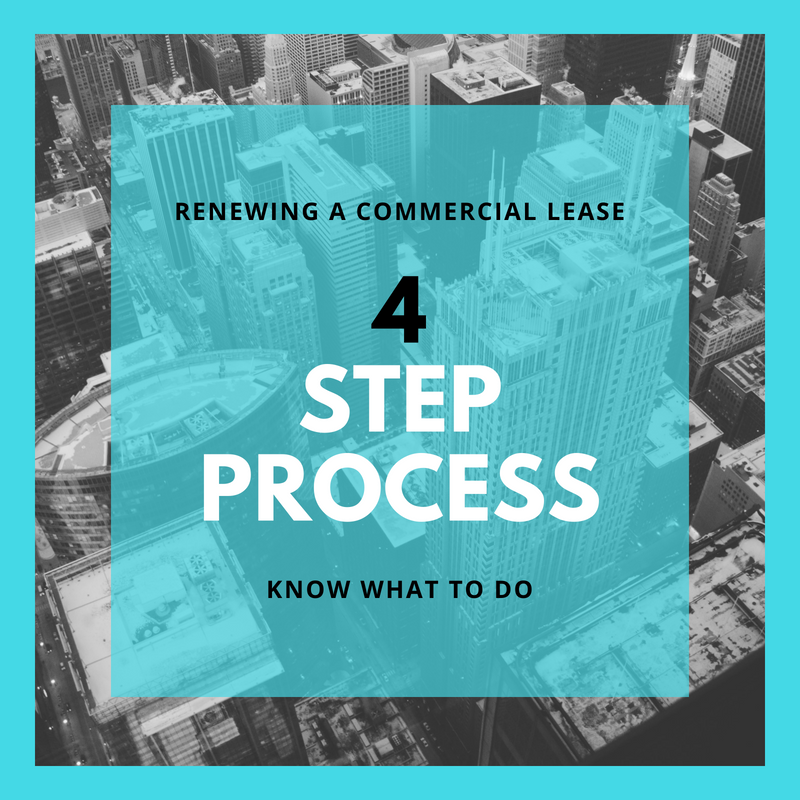What exactly happens when a commercial lease ends? Can you extend, does it automatically renew, or do you need to leave? The reality is that a lot of business owners don’t actually know what will happen or what is within their (or the landlord’s) rights.
Commercial renters often wait until the end of a contract approaches before even thinking about it, which can often complicate matters. Here are 4 easy steps to help you understand what you need to do when your lease expires.
4 Steps to Take When a Commercial Lease Expires
When it comes to an expiring commercial rental agreement, the worst thing you can do is ignore the situation. For most businesses, your location is crucial to your continued success. By letting your lease run out, you could be putting your continued tenancy at risk.
Or if you’re ready to terminate your agreement, there are specific steps you need to follow. As you will see, renegotiating, terminating or extending your lease takes some time and effort and should not be done last minute.
Act sooner rather than later to avoid any problems as it is best practice to start 6-12 months before the agreement ends. Now let’s run through the steps you should take before your commercial lease expires.
1. Decide to Renew or Terminate
Well before your rental agreement ends, you need to decide what will be best for you and your business. You can either end the contract or renew it using the same or new terms.
Ending a contract is easy. All you need to do is ensure that the property is returned to the owner close to its original condition (minus normal wear and tear) by the contract’s end date. This includes repairing any damage, restoring modifications to the original state, and removing all your equipment and fittings.
If you want to continue your rental agreement, you will need to enter negotiations with the landlord by notifying him/her.
2. Notify the Landlord of Your Intentions
As soon as your final decision is made whether you will continue or terminate your contract, you need to notify your landlord of your intentions. Rather than doing this verbally, you should inform them in writing, so that you have an official record of your request.
Even if you trust your landlord, it is important to keep a paper trail. There are protections built-in to the lease and provided by law that allow you to renew and renegotiate at the end of a term, provided you make a request.
If you have elected to end the contract, then this is the last thing you need to do. You have no further obligations once you hand back the property in the required condition by the end of the lease.
For businesses looking to renew though, this is only the beginning of the formal process.
3. Determine Whether You Have a Secured or Unsecured Tenancy
Next, you need to look back at your original documentation and figure out if you hold a secured or unsecured lease. With an unsecured lease, you have limited rights in the negotiation process. The landlord can choose not to renew your contract and is not obligated to your appeals or negotiations.
But if you hold a secured lease, the landlord has a limited time to deny your renewal request and must provide a valid reason for doing so. If they don’t have a valid reason, you are allowed to continue renting.
In practical terms, having a secured contract tends to make the renewal process straightforward and painless. While there can be some negotiation, there is little risk of you losing your space. With an unsecured agreement, you are at the whim of the landlord and risk being forced to leave, which can damage or destroy your business.
4. Establish New Lease Terms
After making a request for the continuation of your commercial lease, you will begin the process of renegotiating. The creation of a new contract is very important, as it will ensure you have the protection of an official document and cannot be kicked out with little notice.
The legal coverage a formal lease document provides you is important, so avoid dealing with any landlords who try to do ‘handshake’ deals.
The negotiation process for renewals is almost the same as when you signed for the first time. When reviewing the contract, try and get an out-clause inserted, ask for favorable modifications, and get the best terms for your business.
Don’t be afraid to negotiate hard – your lease represents a big financial commitment and you need to make sure you get a good deal. The great thing is that since you have completed one rental agreement already, you have a much better idea about what you need to negotiate for and what points you can compromise on.
If you’re interested in getting expert guidance to help you through this process, here’s how you can get in touch with a reputable company.
Seek Advice From a Commercial Property Expert
Although you need to be involved in negotiating your next commercial lease, it could be a mistake to do it on your own. Without expert knowledge, getting a good rental contract can be tough and easy mistakes can be made, which will cost you a lot of money.
To help you through the process of renewing your contract, you should consider hiring an expert agent with commercial lease experience. They can help you begin the process early enough to get the negotiations completed without any interruptions to the operation of your business.
An expert can also provide all the information you need to know about your rights when it comes to renewing a lease. By ignoring an expiring agreement, you risk having your tenancy interrupted or even terminated with little notice.
If you want help to avoid the common pitfalls of a commercial lease renewal, then contact Commercial Lease Locators. Their expert team will do all the hard work for you, leaving you free to stay focused on your business.
All you need to do is drop by the Commercial Lease Locators office, send a message online, or call 512-920-6270. You will be assisted by a professional agent with commercial leasing experience who can advise you on the next steps and help you understand all your rights.

